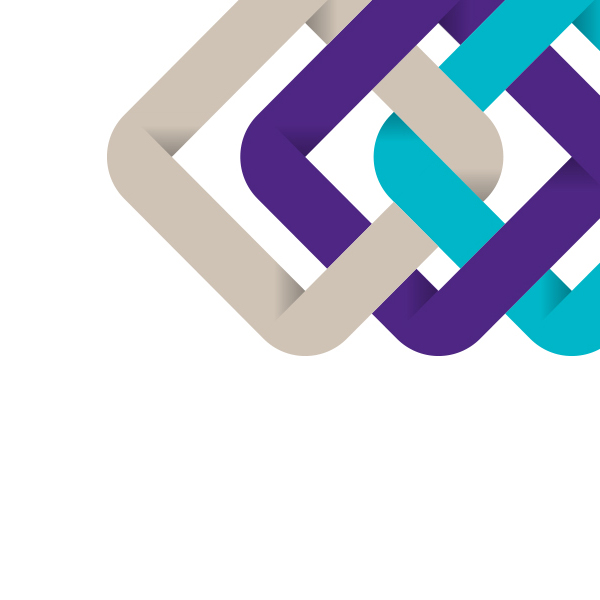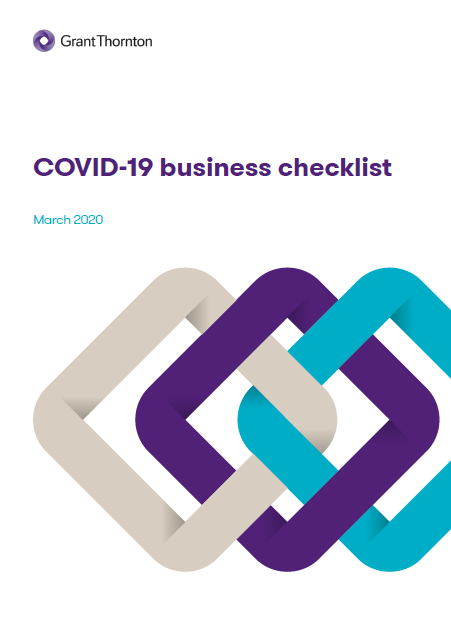-
Business valuations
We offer expert valuation advice in transactions, regulatory and administrative matters, and matters subject to dispute – valuing businesses, shares and intangible assets in a wide range of industries.
-
Capital markets
You need corporate finance specialists experienced in international capital markets on your side if you’re buying or selling financial securities.
-
Complex and international services
Our experience of multi-jurisdictional insolvencies coupled with our international reputation allows us to deliver the best possible outcome for all stakeholders.
-
Corporate insolvency
Our corporate investigation and recovery teams can help you manage insolvency situations and facilitate the best outcome.
-
Debt advisory
An optimal funding structure for your organisation presents unprecedented opportunities, but achieving this can be difficult without a trusted advisor.
-
Expert witness
Our expert witnesses analyse, interpret, summarise and present complex financial and business-related issues which are understandable and properly supported.
-
Financial models
A sound financial model will help you understand the impact of your decisions before you make them. Talk to us about our user-friendly models.
-
Forensic and investigation services
We provide investigative accounting and litigation support services for commercial, matrimonial, criminal, business valuation and insurance disputes.
-
Independent business review
Is your business viable? Will it remain viable in the future? A thorough independent business review can help your organisation answer these fundamental questions.
-
IT forensics
Effective ESI analysis is integral to the success of your business. Our IT forensics experts have the technical expertise to identify, preserve and interrogate electronic data.
-
Mergers and acquisitions
Grant Thornton provides strategic and execution support for mergers, acquisitions, sales and fundraising.
-
Raising finance
Raising finance - funders value partners who can deliver a robust financial model, a sound business strategy and rigorous planning. We can guide you through the challenges that these transactions can pose and help you build a foundation for long term success once the deal is done.
-
Relationship property services
Grant Thornton offers high quality independent advice on the many financial issues associated with relationship property from considering an individual financial issue to all aspects of a complex settlement.
-
Restructuring and turnaround
Grant Thornton’s restructuring and turnaround service capabilities include cash flow, liquidity management and forecasting; crisis and interim management; financial advisory services to companies and parties in transition and distress
-
Transaction advisory
Our depth of market knowledge will steer you through the transaction process. Grant Thornton’s dynamic teams offer range of financial, commercial and operational expertise.
-
Corporate tax
Grant Thornton can identify tax issues, risks and opportunities in your organisation and implement strategies to improve your bottom line.
-
Employment tax
Grant Thornton’s advisers can help you with PAYE (payroll tax), Kiwisaver, fringe benefits tax (FBT), student loans, global mobility services, international tax
-
Global mobility services
Our team can help expatriates and their employers deal with tax and employment matters both in New Zealand and overseas. With the correct planning advice, employee allowances and benefits may be structured to avoid double taxation and achieve tax savings.
-
GST
GST has the potential to become a minefield and can be expensive when it goes wrong. Our technical knowledge can help you minimise the negative impact of GST
-
International tax
International tax rules are undergoing their biggest change in a generation. Tax authorities around the world are increasingly vigilant, especially when it comes to global operations.
-
Research and Development
R&D tax incentives are often underused and misunderstood – is your business maximising opportunities for making claims?
-
Tax compliance
Our advisers help clients manage the critical issue of compliance across accountancy regulations, corporation law and tax. We also offer business and wealth advisory services, which means we can provide a seamless and tax-effective offering to our clients.
-
Transfer pricing
Tax authorities are demanding transparency in international arrangements. We businesses comply with regulations and use transfer pricing as a strategic planning tool.
-
Audit methodology
Our five step audit methodology offers a high quality service wherever you are in the world and includes planning, risk assessment, testing internal controls, substantive testing, and concluding and reporting
-
Audit technology
We apply our audit methodology with an integrated set of software tools known as the Voyager suite. Our technology has been developed to produce quality audits that are effective and efficient.
-
Financial reporting advisory
Our financial reporting advisers have the expertise to help you deal with the constantly evolving regulatory environment.
-
Business architecture
Our business architects help businesses with disruptive conditions, business expansion and competitive challenges; the deployment of your strategy is critical to success.
-
Cloud services
Our team is led by cloud business experts who tailor services to the needs of your organisation, from strategy and implementation to ongoing services assurance.
-
Internal audit
Our internal audits deliver independent assurance over key controls within your riskiest processes, proving what works and what doesn’t and recommending improvements.
-
IT advisory
Our hands on product experience, extensive functional knowledge and industry insights help clients solve complex IT and technology issues
-
IT privacy and security
IT privacy and security should support your business strategy. Our pragmatic approach focuses on reducing cyber security risks specific to your organisation
-
Organisational & cultural change
The key to sustainable and future growth is a unified organisation operating within a strong cultural context, where transparency and communication are the priority for Kaimahi, and where visible leadership means walking the talk – but where does that journey begin?
-
Payroll assurance
Our specialist payroll assurance team can conduct a review of your payroll system configuration and processes, and then help you and your team to implement any necessary recalculations.
-
PCI DSS
Our information security specialists are approved Qualified Security Assessors (QSAs) that have been qualified by the PCI Security Standards Council to independently assess merchants and service providers.
-
Process improvement
As your organisation grows in size and complexity, processes that were once enabling often become cumbersome and inefficient. To maintain growth, your business must remain flexible, agile and profitable
-
Procurement/supply chain
Procurement and supply chain inputs will often dominate your balance sheet and constantly evolve for organisations to remain competitive and meet changing customer requirements
-
Project assurance
Major programmes and projects expose you to significant financial and reputational risk throughout their life cycle. Don’t let these risks become a reality.
-
Risk management
We understand that growing companies need to establish robust internal controls, and use information technology to effectively mitigate risk.
-
Robotic process automation (RPA)
RPA is emerging as the most sophisticated form of automation used to help businesses become more agile and remain competitive in the face of today’s ongoing digital disruption.
The Government has just announced its $12.1b stimulus package for New Zealand businesses which is worth 4% of GDP, and is bigger than the packages provided in Australia and the UK on a per capita basis.
As anticipated, to reduce the impact of COVID-19 on our economy, the package includes wage subsidies and a cash injection for the health sector; here are the key points your business needs to be aware of:
- Wage subsidies: a $5.1b wage subsidy scheme has been put in place, which pays a lump sum of up to $150,000 to employers - $350 per week per part time worker, and $585.80 per week per full time worker from today. To qualify for this subsidy, your business will need to declare a loss of at least 30% in revenue compared to last year for any month between January 2020 and the end of the scheme in June 2020, and you will need to demonstrate that you have spoken to your bank about your situation. Businesses can apply for this funding in five days’ time.
- Employee self-isolation incentive: to stem the spread of COVID-19 by encouraging workers to self-isolate, $126.5m has been allocated to cover 14-day isolation periods, or an employee’s entire period of sickness. This covers employees, contractors, the self-employed and sole traders. The sum allocated for each staff member is also $350 per week per part time worker, and $585.80 per full time worker. Employers are still required to meet their current sick leave obligations to employees over and above this incentive.
- Tax changes:
- Depreciation for commercial buildings at 2% diminishing value for the 2021 income year has been reintroduced
- Low value asset threshold write-off has increased from $500 to $5,000 for the 2021 income year; this will revert to $1,000 in the 2022 income year
- Provisional tax threshold has increased from $2,500 to $5,000
Inland Revenue has been given discretion to remit use of money interest.
Other sources of support
Tax relief and income assistance from IRD
Inland Revenue is also offering tax relief and income assistance to those affected by the coronavirus downturn, including re-estimating provisional tax, early refunds and payment in instalments. It’s possible that businesses could also get an extension to filing dates for income tax returns, and penalties on late filings for PAYE and GST may be remitted.
Supply chain and business continuity planning
Two further areas of concern for Kiwi companies are supply chain and business continuity. This type of planning is critical and often doesn’t feel urgent until it is. If you’re updating or creating a disaster response plan for your organisation, our COVID-19 business checklist is a useful resource.
Please keep in touch
If you need to discuss any of the information above and your organisation’s specific circumstances, please don’t hesitate to get in touch with me; our specialists across business risk, business continuity, workforce, tax, compliance, supply chain and restructuring, are here to help.

